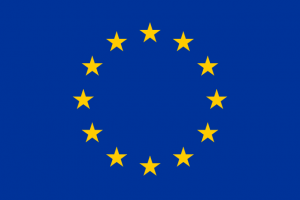


What is “social justice”?
For some, it represents an ideal or a vision of a certain kind of society. For others, it’s a placeholder for particular government policies. For others, it’s a mere marker of ideology. For Michael Novak, the answer is “none of the above.”
In his final book, Social Justice Isn’t What You Think It Is,published prior to his recent passing, Novak argues that social justice is a virtue — a “habit of the heart” that is “embodied in individual persons.” “Social justice names a new virtue in the panoply of historical virtues,” Novak writes, “a set of new habits and abilities that need to be learned, perfected, and passed on to new generations — new virtues with very powerful social consequences.”
Beginning with an overview of the term’s origins, Novak outlines the term’s evolution over time, from Leo XIII’s Rerum Novarum to Pius XI’s Quadragesimo Anno and beyond, building a definition that’s (1) connected to the original understanding of the term, (2) ideologically neutral, and (3) applicable to current circumstances.
“Social justice is a virtue that adheres in persons,” he explained in a recentActon lecture on the book. “It is a social habit, a form of associations, and choosing to work through those associations for mon good.”
As Novak makes clear, “social justice”is not “social” out of some fondness for political power and the supposed “efficiency” of government mon misconception). It is “social” inits aim toward mon good and its fundamental orientation around humanrelationships and institutions:
First, [social justice’s] aim or purpose is to improve mon good of society at large, perhaps on a national scale or even an international scale, but certainly on a range of social institutions outside the home. A village or neighborhood may need a new well, or a new school, or even a church. Workers may need to form a union, and to unite with other unions. Since the cause of the wealth of nations is invention and intellect, new colleges and universities need to be founded. All these are social activities – the social activities of a free and responsible people.
…But this new virtue is called “social” for a second reason. Not only is its end social, but so also are its constitutive practices. The practice of the virtue of social justice consists in learning three new skills: the art of forming associations, willingness to take leadership of small groups, and the habit and instinct of cooperation with others. All three are needed in order to plish ends that no one individual can achieve on his or her own.
Having handily corrected the co-opting of “social justice” by the Left, Novak proceeds to confront a range of hostile attitudes on the right, beginning with one the term’s foremost critics: economist Friedrich Hayek.
Famous for ridiculing “social justice” as a mere “mirage,” Hayek believed the term was “intellectually disreputable” and “the mark of demagogy or cheap journalism.” Novak is quick to remind us that the term was just as muddiedin Hayek’s time as it is today. “How many sufferings have been heaped on the world’s poor under that banner!” Novak writes. “It is no wonder Hayek loathed it so.”
For Hayek, as withmany of us today, the term didn’t represent a virtue, but an attachment to state priorities and progressive causes. In turn, Hayek believed the “greatest service” he could offer was to make others “thoroughly ashamed ever again to employ the term ‘social justice.’”
Despite this bitter resolve, Novak spots an opening. When properly understood, Novak argues, the term actually melds quite well with Hayek’s overarching philosophy. In a chapter boldly titled, “Friedrich Hayek, Practitioner of Social Justice,” Novak connects these dots with flair, reminding us of Hayek’s basic views on social responsibility and the power of free association. “Despite his deep contempt for those concepts of social justice that do injury to the free society,” Novak writes, “Hayek overlooked a concept of social justice — social justice rightly understood — that put a name to the specific habit of justice of which he was an eminent practitioner.”
To prove this point, Novak highlights an excerpt from Hayek’s famous work, The Fatal Conceit:
It is one of the greatest weaknesses of our time that we lack the patience and faith to build up voluntary organizations for purposes which we value highly, and immediately ask the government to bring about by coercion (or with means raised by coercion) anything that appears as desirable to large numbers. Yet nothing can have a more deadening effect on real participation by the citizens than if government, instead of merely providing the essential framework of spontaneous growth, es monolithic and takes charge of the provision for all needs, which can be provided for only by mon effort of many.
For some, the extensive correction of Hayek may seem trivial or unnecessary. But it’s as good a review as any to uncover what Novak is ultimately after: a virtue pointed not toward the state or the individual, but mon good as achieved through “free and responsible people.”
“At one pole this new virtue is a social protection against atomistic individualism,” Novak writes, “while at the other pole it protects considerable civic space from the direct custodianship of the state.”
The shift this requires in our thinking will sometimes feel dull or fortable. It points us away from whiz-bang psuedo-solutions and clean-and-easy answers, whether found in the knee-jerk activism of social planners or the shruggish ambivalence of cynic individualists.
As Novak reminds us, social justice is not a plan or resistance to a plan. It is a virtue we must learn to embody as individuals.It will involve day-to-day action in day-to-day exchanges. It will involve initiative and creativity, collaboration and sacrifice.
In the end, that virtue — those mundane “habits of the heart” — may just lead to a renewal of right relationship and civil society.
Image: Amazon









